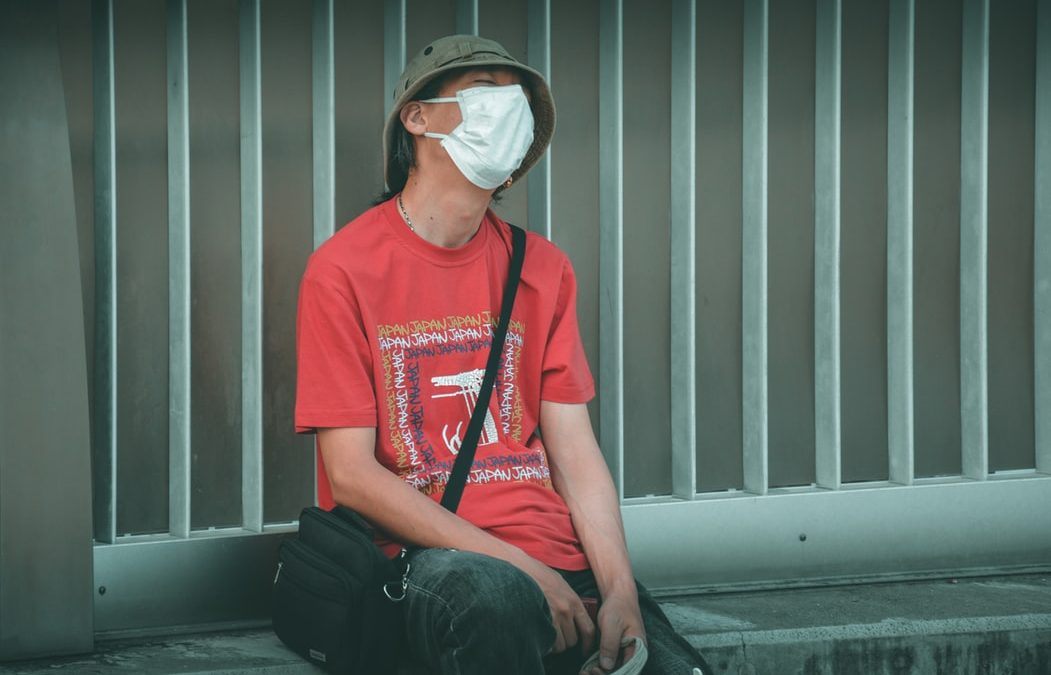Coronavirus Florida: My Husband Survived COVID-19. ‘And it was one hell of a ride.’
Craig Hirsh of suburban Boynton Beach went skiing in Colorado this month. This week, he learned he tested positive for the coronavirus. Here’s a day-by-day diary of his ordeal.
Editor’s Note: Samantha Hirsh of suburban Boynton Beach, a marketing worker and a stay-at-home mom of a 13-year-old daughter and an 11-year-old son, chronicled the ordeal her husband, Craig, a financier, suffered with the ailment caused by coronavirus. Here is her story, edited for space and clarity.
My healthy and fit 40-year-old husband survived COVID-19. And it was one hell of a ride.
We are a family of four. Both myself and my son have respiratory conditions.
Wednesday, March 11: My husband went on a boys ski trip to Vail, Colorado. Our children were still in school and there were no restrictions on travel. Yes, there were statistics of many cases in Washington state and at the time only a handful in New York. Maybe we were being naive…
Coronavirus: How Sick Will You Get?
Together, a Palo Alto couple fell ill. He recovered quickly. She didn’t. Why?
Monica and Adrian Arima both were infected by the COVID-19 virus at the same time on the same Nile River cruise, probably during a shared dinner buffet between the Egyptian cities of Aswan and Luxor. As they traveled home to Palo Alto, the couple’s early symptoms — body aches and low-grade fever — were identical.
But then, mysteriously, their experiences suddenly diverged. Monica spent 13 days at Stanford Hospital; Adrian was there for just three days. She needed extra oxygen and an experimental drug; he didn’t.
Now, weeks later, she still has a cough. He is fully recovered, healthy enough to go food shopping and do other errands. Meanwhile, two of their traveling companions — in their 70s and 80s — tested positive but never suffered symptoms.
Their experience illustrates one of the many puzzling questions raised by the lethal new disease: Why is COVID-19 so inexplicably and dreadfully selective? The difference between life and death can depend on the patient’s health and age — but not always.
COVID-19: Could Hydroxychloroquine Really Be the Answer?
Could the old generic malaria drug hydroxychloroquine (Plaquenil, Sanofi-Aventis, among others), which is also used for the treatment of rheumatic disease, be an essential treatment for COVID-19?
This hypothesis, put forward by some, including Professor Didier Raoult of the IHU Méditerranée Infection in Marseille, was dismissed by other eminent infectious disease specialists and dismissed as fake news recently by the Ministry of Health.
Yet it resurfaced yesterday with the presentation on YouTube by Prof Raoult of positive results in a non-randomised, unblinded trial of 24 patients…
Mild COVID-19 Often Only Shows Gastro Symptoms
WEDNESDAY, April 1, 2020 (HealthDay News) — When most people think of COVID-19, they imagine symptoms such as a dry cough and high fever. But new research out of China shows that a minority of cases appear with gastrointestinal symptoms only.
In about one-quarter of patients in the new study, diarrhea and other digestive symptoms were the only symptoms seen in mild COVID-19 cases, and those patients sought medical care later than those with respiratory symptoms.
How Do You Know if You Have a ‘Mild’ Case of COVID-19?
There is also some data that people with fatigue, headache, abdominal pain, and shortness of breath seem to progress past mild disease, especially if their age is over 60 and they have other health problems (like heart, lung, or kidney disease, cancer, and depressed immune systems). But remember, ANYONE can get severely ill from COVID-19, we are seeing people in their 20s, 30s, and 40s, without any medical problems get so sick that they need a breathing tube…
Coronavirus on Fabric: What You Should Know
Many emergency room workers remove their clothes as soon as they get home — some before they even enter. Does that mean you should worry about COVID-19 transmission from your own clothing, towels, and other textiles?
While researchers found that the virus can remain on some surfaces for up to 72 hours, the study didn’t include fabric. “So far, evidence suggests that it’s harder to catch the virus from a soft surface (such as fabric) than it is from frequently touched hard surfaces like elevator buttons or door handles,” wrote Lisa Maragakis, MD, senior director of infection prevention at the Johns Hopkins Health System…


Recent Comments